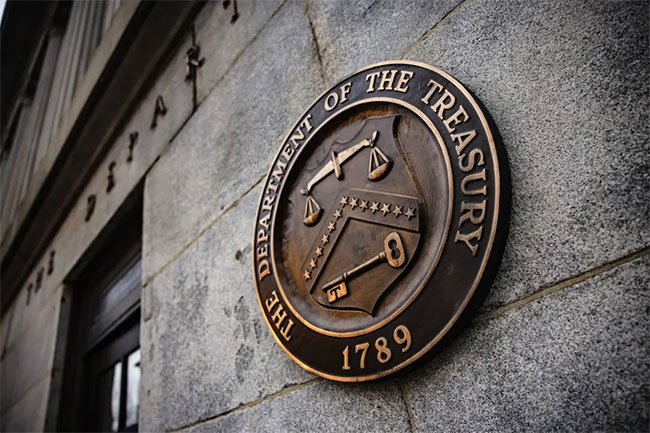More vulnerable nations are anticipated to seek assistance, according to a senior U.S. Treasury official who stated on Monday that there were indications of “potential improvement” in sovereign debt restructuring cases, but more effort was required to speed up the process.
In addition to highlighting developments in the situations of Zambia, Ghana, and Sri Lanka during the last year and highlighting the creation of new technical techniques, Treasury Assistant Secretary for International Finance Brent Neiman expressed his optimism that Ghana would come to an agreement on its external restructuring in the upcoming weeks.
“It’s evident that we haven’t progressed rapidly enough, and there is still a great deal of work to be done,” Neiman stated at a lecture at the Johns Hopkins School for Advanced International Studies.
“The critical test of any progress will be whether it is sustained when, as seems likely, more countries come forward requesting debt treatments,” he stated.
“But, I am hopeful that our recent efforts are yielding some movement towards an improved international debt architecture that can help low- and middle-income countries when they need it.”
He did not specify which nations would be prepared to request assistance while long-stalled debt restructuring procedures for Zambia, Ghana, and other nations proceeded.
During the COVID epidemic, the Group of 20 major economies established the Common Framework for debt relief for low-income nations. Of those, only two countries—Zambia and Chad—have finished the procedure, while Ethiopia is still in the process.
Even though the majority of low-income countries are in or close to financial distress, other nations’ interest has been stifled by the glacial pace of progress on debt restructuring.
According to Neiman, the problem has risen to the top of the worldwide economic agenda as a result of the attention that world leaders have given it. To assist come to an agreement on standard terms and treatments, international institutions, lenders from the public and commercial sectors, and borrowers have come together under the Global Sovereign Debt Roundtable (GSDR).
Participants in the roundtable talked about state-contingent debt instruments (SCDIs), which aided in Zambia’s restructuring. Neiman said these can be useful when creditors have different opinions about the future prospects of a borrower, such as when there are disagreements about the outlook for oil prices in a debtor nation that exports oil.
These securities can lower interest payments in the case of catastrophic weather or other natural disasters, or they can pay more interest when growth is greater or the price of important commodities rises.
“Since SCDIs can automatically lower debt repayments in times of economic stress, the hope is that they can reduce the need for debt treatments in the first place,” Neiman stated.
According to Neiman, restructuring domestic debt might also facilitate attempts to restructure overseas debt, as in the instance of Ghana. However, it is not always feasible to simply insist on treating domestic and external debt equally, with the same drop in net present value, since this might place a disproportionately high financial burden on domestic debt holders, especially banks in the debtor nation.
“We hope that a simple insistence on achieving comparability of treatment between domestic and external debt will not in the future hold up any restructuring cases,” Neiman stated.

